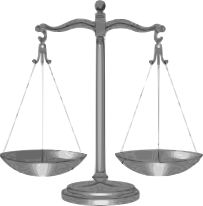
I have spent many years helping disability claimants receive their benefits. When an insured suffering with a physical or mental disability is denied his or her insurance coverage claim, they begin the confusing and uncertain process of looking for a capable, trustworthy attorney to help them obtain their money.
As an attorney who is familiar with the industry, I have always empathized with claimants who call and are really suffering – under emotional duress, experiencing physical pain and limitations, worried about their significant loss of income, unsure whether they will ever work in their field again… The last thing they need is the extra stress of researching and sifting through the available attorneys. Information about attorneys is not disseminated in an efficient manner, and the internet can only tell you so much. Here are some tips:
1. Choose an attorney who is a specialist in insurance claims.
For the most part, attorneys specializing in insurance claims are experts at what they do, and will ultimately recover the client’s benefits (if the claim is valid, of course). The best place to find their dedicated specialty is on their website. If the website doesn’t clarify the types of clients they have experience representing, call and ask. Insurance litigation is a very complex specialty, and disability insurance is a unique sub-speciality of insurance. You should select an attorney who has already handled disability claims successfully, if possible.
2. Don’t choose someone simply because they are nearby.
You are not limited to selecting an attorney located in your home state. Often the best attorneys are located in large metropolitan areas, or in the most favorable venue state. That does not mean they are less able to help you. In fact, it is much better to get an excellent attorney located in another state than hire one nearby who has no experience battling with large insurers.
3. Choose an attorney you can trust.
Follow your gut feeling. If you are seeking an attorney who will speak to you on the telephone directly, and answer your questions to your satisfaction, you can find one. Clients have often contacted me because they did not feel comfortable with the treatment they received when they contacted other firms – something just didn’t feel right. For example, I once had a caller tell me, “I already contacted XYZ Law Firm, and they told me my claim is incredibly unique and they had never heard of such bad behavior from an insurer. I don’t know why, but I just didn’t believe them. So I decided to call other firms.” The caller was absolutely correct. His claim was not that unique. The large firm was using a sales technique to “sign him up”. Ultimately, he signed with us instead.
4. Ask who will be handling your case.
At some firms, highly skilled paralegals and legal assistants perform the majority of the work on your case. You may manage to get an attorney on the telephone once during the entire representation. At other firms, the attorneys take a more active role, and will even hand out their personal cell phone numbers. Choose the situation you are comfortable with. When you are thinking about signing with a firm, ask them who your main contact will be, and what that person’s role is within the firm. Ask to speak with that person, so you know what to expect. You are the client. You can insist upon having direct contact with an attorney, if you so desire.
5 . Don’t be fooled by fancy legal terminology.
. Don’t be fooled by fancy legal terminology.
While you certainly want to hire an attorney who is familiar with the laws applicable to your claim, don’t hire one because you were dazzled by their ability to recite legal terms. If an attorney is rattling off legal terms that you have never heard, stop him/her and ask what it means! See if their explanation makes sense to you. Because as Albert Einstein once said, “If you can’t explain it simply, you don’t understand it well enough!”
6. If you call a firm and they indicate they are unable to represent you, ask why. Then, ask them if they can recommend someone better-suited to help you.
Often, merely posing the question “Why won’t you represent me?” will reveal a great deal about your claim, and help you find a firm that is a better fit. It also does not hurt to ask if they know of a firm that handles your type of claim. Usually a firm has a short list of pre-screened firms it is willing to work with, so if you like a particular firm, you will probably like the attorneys they routinely work with.
7. Check for a disciplinary record.
Last but not least, go to the state bar website of the attorney you have selected and run a search for disciplinary records. You will also find information about which law school the attorney attended, etc. It may be wise to avoid attorneys who attended law schools that are not accredited by the American Bar Association (a quick Google search will provide this info), although I say that with some reservation, because I have noticed that fantastic attorneys graduate from all levels of law schools. In general, law school is extremely rigorous. Ever see the movie “The Paper Chase?”.